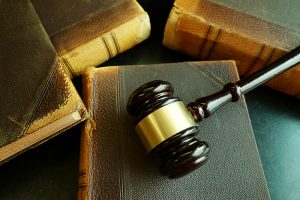 Last month, the Virginia Supreme Court handed down a ruling in an estate dispute that clarified the standard for admitting a will to probate, and further discussed the standard for admitting testimony concerning the decedent’s will when the genuineness of the will is called into question. The case – Canody v. Hamblin, 2018 WL 3471372 – provides a helpful overview of Virginia law on those two issues, and the following is a summary of the case facts and the holdings.
Last month, the Virginia Supreme Court handed down a ruling in an estate dispute that clarified the standard for admitting a will to probate, and further discussed the standard for admitting testimony concerning the decedent’s will when the genuineness of the will is called into question. The case – Canody v. Hamblin, 2018 WL 3471372 – provides a helpful overview of Virginia law on those two issues, and the following is a summary of the case facts and the holdings.
Facts
The decedent’s daughter petitioned the circuit court to have a document admitted to probate as her father’s will. The will consisted of three computer-generated pages of the same font and font size, with staple holes lining up on all pages. However, the will did not have any page numbers. The decedent’s son opposed the probating of the will because he was omitted from it.
At trial, one of the witnesses to the will, as well as the notary, testified to their roles in the execution of the will, but neither was able to testify as to the contents of the first two pages of the will. As a result, counsel for the decedent’s son argued that the first two pages may have been substituted in between the time the will was executed and the time the daughter sought its admission to probate.
To rebut that argument, the daughter called a close friend of her father’s to testify that several weeks before the father passed away, the father told the friend how he wanted his assets disposed of, and that he specifically didn’t want his son to receive any money. The trial court permitted the friend’s testimony over the objection of counsel for the son. The trial court ruled for the daughter as to the admissibility of the will, and the son appealed to the Virginia Supreme Court.
Standard for Admitting a Will to Probate
On appeal, the son argued that the will was never properly authenticated and therefore should not have been admitted to probate. The Virginia Supreme Court first discussed how under Virginia law, the burden rests with the proponent of a will to show “by a preponderance of the evidence that the purported will was written and executed in the manner prescribed by statute.” Id. at *5 (citing Wilroy v. Halbleib, 214 Va. 441, 447 (1974)). The son claimed that the trial court erred by failing to require the daughter, as the proponent of the will, to authenticate all three pages of the will (in light of the witnesses not having been able to identify the first two pages of the will, and those pages being unnumbered). The son asked the court to “adopt a rule that the proponent of the will must show no alterations or changes either before or after execution,” which would entail requiring proof of either page numbers on each page, initials on each page, dates on each page, or metadata on the final document. Id.
The Virginia Supreme Court rejected the son’s argument, relying largely on its prior ruling in Croft v. Snidow, 183 Va. 649 (1945). In that case, the Court held that there is no “requirement in the law for the witnesses to ‘read [the will] or examine it with such care as to be able, upon application to admit to probate, to say that all the pages or clauses of the proposed will were the pages and clauses signed by the testator and attested by them.’” Id. at 655. The Court further quoted its ruling in Croft that: “[w]here the subscribing witnesses identify their signatures, but have no recollection of having attested the instrument, or the circumstances of execution, the presumption that it was properly executed will uphold it in the absence of clear and satisfactory proof to the contrary.” Id. The Court concluded that the son’s evidence merely may have established an opportunity for fraud, but he did not come close to establishing that the will was actually fraudulent.
Standard for Admitting Testimony Concerning the Decedent’s Will
The son further argued on appeal that the trial court erred when it permitted father’s friend to testify as to the father’s stated intentions for the content of his will. The Virginia Supreme Court began its analysis by referring to its ruling in Samuel v. Hunter, 122 Va. 636 (1918). In Samuel, the Court held that where the genuineness of a will has been attacked, declarations of the testator “are admissible as circumstances, either to strengthen or to weaken the assault, according to their inconsistency or their harmony with the existence of terms of the will.” Id. at 638. Accordingly, statements by the testator are “admissible as showing the state of mind of the testator and his plan and intent as being consistent or inconsistent with a will, the genuineness of which is called in question by other proper evidence.” Id. at 641.
The Court applied its holding in Samuel to the present case and ruled that the trial court had properly permitted father’s friend’s testimony that the first two pages of the will were consistent with father’s stated testamentary intent, in order to rebut the claim that the first two pages were not properly part of the will that father executed.




